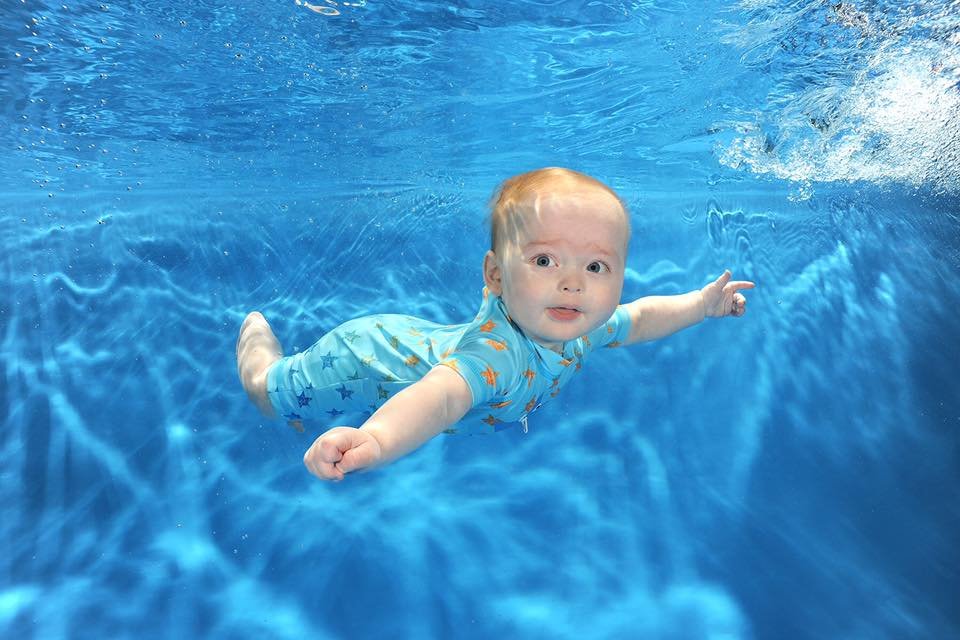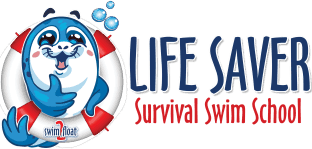
Teaching infants to swim is a practice that transcends the joy of water play. It can be a therapeutic intervention, especially for those with respiratory problems. While the idea of introducing babies to swimming might seem unconventional, the benefits, particularly for infants with respiratory problems, are substantial. In this article, we will explore how early swimming lessons can contribute to the well-being of infants facing respiratory issues.
Enhanced Respiratory Function
Water environments stimulate unique breathing patterns in infants, promoting the development of respiratory muscles. The buoyancy of water reduces the strain on the respiratory system, allowing babies to practice breath control more comfortably. In turn, this can lead to improved lung capacity and better oxygenation of the body. For infants with respiratory problems, this can be a crucial step towards strengthening their respiratory muscles, potentially aiding in more effective breathing.
Increased Oxygen Circulation
Swimming promotes cardiovascular health, which is directly linked to respiratory function. The gentle exercise that swimming provides helps enhance blood circulation, ensuring that oxygen is efficiently transported throughout the body. This is particularly beneficial for infants with respiratory challenges as it can alleviate stress on the respiratory system and support overall oxygenation.
Introduction to Breath Control Techniques
Learning to swim from an early age exposes infants to breath control techniques. Teaching babies how to exhale underwater and inhale when their face is above the water surface helps develop a rhythmic breathing pattern. This acquired skill can be beneficial for infants with respiratory issues, as it encourages better control over their breathing and can potentially reduce instances of breath-holding or irregular breathing patterns.
Boosted Immune System
Regular exposure to water can contribute to a strengthened immune system in infants. Swimming in a controlled, clean environment exposes babies to different water temperatures and helps them build resistance to common illnesses. For infants with respiratory problems, a stronger immune system can mean fewer respiratory infections, reducing the likelihood of exacerbating their existing conditions.
Development of Motor Skills
Swimming engages a variety of muscles and promotes the development of motor skills in infants. The coordinated movements required in swimming help strengthen muscles, improve balance, and enhance coordination. This is particularly valuable for infants with respiratory issues, as it encourages overall physical development without putting excessive strain on the respiratory system.
Cognitive and Emotional Benefits
Beyond the physical advantages, swimming can have positive effects on the cognitive and emotional well-being of infants. The sensory experiences associated with swimming – the feel of water, the sound of splashing, and the visual stimulation – contribute to cognitive development. Moreover, the sense of weightlessness in water can be emotionally soothing for infants, potentially reducing stress and anxiety, which can be especially beneficial for those with respiratory challenges.
Teaching infants with respiratory problems to swim is a holistic approach to supporting their overall well-being. The benefits extend beyond the physical advantages, encompassing respiratory health, immune system strengthening, and cognitive development. While it’s essential to consult with healthcare professionals before introducing infants with respiratory challenges to swimming, the evidence suggests that when done safely and with proper guidance, swimming can be a therapeutic and enjoyable activity for these young ones. As parents and caregivers explore avenues to enhance the quality of life for infants with respiratory problems, the therapeutic waters of swimming offer a promising and refreshing solution.
Life Saver Survival Swim School Has Had Years of Experience with Students with All Sorts of Problems
Our swim school has had many years of experience teaching children with not only respiratory problems, but all sorts of physical and mental handicaps. Of course, our school not only promotes but sometimes requires parents to get their children medically cleared before enrolling in our school. Your child’s safety is always what is most important!
If you have any questions, give our owner Bonnie a telephone call. She can be reached by dialing (832) 366-3008. Or, of course, you can email her.

